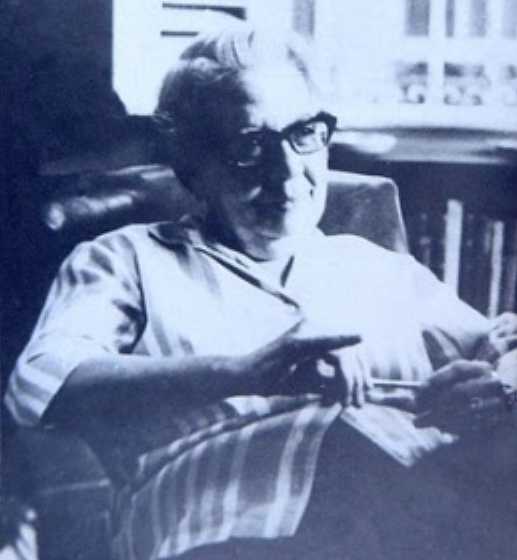4.1.1.21.2 The political-social theme in the work of Mirta Aguirre

Mirta Aguirre’s political and social poetic work is markedly scattered in terms of publication date and space; however, the majority of it appeared in the pages of “Hoy” and “La Gaceta del Caribe.” Her own foray into this field of poetry demonstrates an aesthetic perspective closely linked to an ideological conception that was not limited to the realm of poetry but also determined a sustained revolutionary praxis.
In his poetic texts of this nature, the lyrical and the epic are appropriately interwoven, in which the importance per se of the message they contain is anchored in countless expressive resources, among which the use of those that are subtly emphatic abounds, appealing directly to a subliminal level of consciousness.
His militant verses with anti-fascist themes fall into this vein, most of them linked to the Spanish Civil War and the heroic actions it entailed. These include the titles “Romance de la guerra civil” and “España” (Romance of the Civil War) and “España” (Spain). Both date from the period in which the bloody conflict was taking place and are part of a series of eight unpublished lithographs, which share the common title “Galicia mártir” (Martyr Galicia).
These poems reflect anguish and heroism that are not unique to this conflict, as they are somehow associated with all great struggles of peoples. Although he conveys his concerns regarding child victims and the prevailing horror in general, his poetry on this subject is more a hymn to heroism and hope than a martyrology.
Along the same thematic lines, but from a later period, is the poem “Ancient Song to Che Guevara,” in which the intimate and the public converge in a common sorrow. This poem achieved universal resonance given the symbolism of his figure for the peoples and their revolutions, whether already undertaken or in the making. This poem is aptly incorporated into the national tradition and constitutes perhaps the highest aesthetic exponent that the pain of the loss of the Heroic Guerrilla would leave among us:
“-Where are you, Knight Bayardo,
knight without fear and without blemish?
-In the wind, madam, in the gust
that ignites the flame in which I burn.
-Where are you, gallant knight,
knight without blemish and without fear?
-In the flower that I grant to my life:
in the thistle, madam, in the thistle.
-Where are you, gentleman safe,
knight of certain destiny?
-With the sword clearing the way
to the future, madam, to the future.
-Where are you, purest knight,
knight the best knight?
-Lighting the guerrilla torch
in the dark, madam, in the dark.
-Where are you, strongest knight,
knight of the burning dawn?
-In the blood, in the dust, in the wound,
in death, madam, in death.
-Where are you, knight, already inert,
knight now motionless, and errant?
-In the one who makes my glove his own
and my luck, madam, my luck.
-Where are you, knight of glory,
gentleman among so many first?
-Made saga in death that I die;
made history, madam, made history?”








